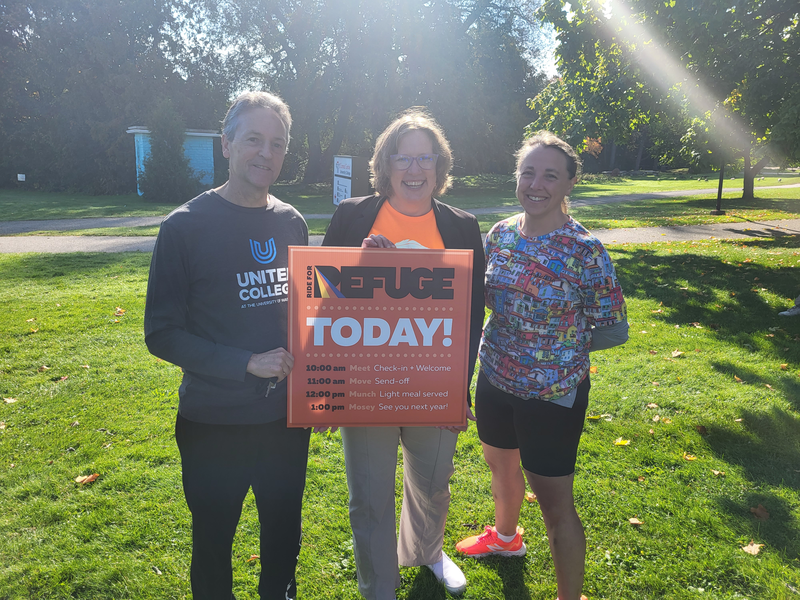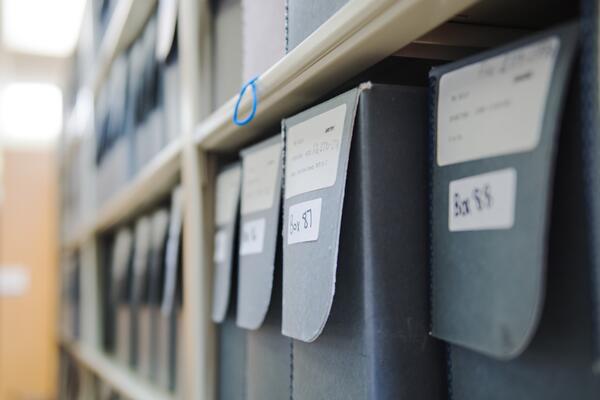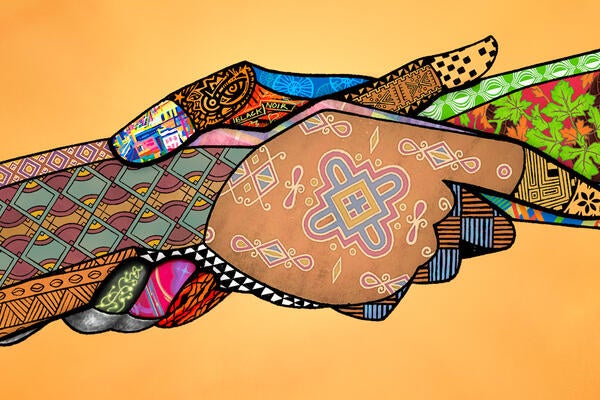
United College celebrates success of Ride for Refuge 2023
United College and University of Waterloo welcome dozens of new refugees to campus

United College and University of Waterloo welcome dozens of new refugees to campus
By Rebecca Wagner United CollegeOn Saturday, September 23, thousands of people from cities across Canada, came together to walk and bike in support of some of the most vulnerable people in our community during the annual Ride for Refuge event — a family-friendly, in-person fundraising ride/walk in support of charities that help people seeking hope, safety and freedom.
After partnership discussions with Reception House were put on hold during the pandemic, United College was excited to resume the conversation earlier this year to support the charity’s critical work with local refugee children and youth, helping families build new lives in Waterloo region.
As a result of this effort, United College hosted the Ride for Refuge in September for the first time. Dozens of community members from across the region came together for this important mission, including staff from United College and the University of Waterloo, Reception House volunteers and representatives from all levels of government.

United College’s mission centers around social responsibility, social justice and good citizenship, which is the reason refugee resettlement and breaking down barriers to education are integral to the college’s work.
“We were pleased to host Reception House’s signature event this year. Its success no doubt has ignited the start of what we hope to be a long-standing partnership for the greater good of the community we serve,” said Rick Myers, principal of United College.
The event was also an incredible show of support and an informal welcome to over 50 newly arrived refugee families to the Waterloo community, some of whom had only arrived in the region a few days earlier. The atmosphere was buzzing with excitement as parents expressed optimism for a new beginning, and children from many different backgrounds ran up and down the hill on United College’s campus.
 “This is just the beginning. We are both humbled and encouraged by Reception House’s work in the community, and that’s why we intend to leverage our university’s resources to inspire a pursuit of higher education and provide the support needed to get there,” Myers stated.
“This is just the beginning. We are both humbled and encouraged by Reception House’s work in the community, and that’s why we intend to leverage our university’s resources to inspire a pursuit of higher education and provide the support needed to get there,” Myers stated.
“We greatly appreciate all the riders, walkers and donors who helped raise funds to support children and youth programming. We couldn't do it without you,” added Babur Mawladin, executive director, Reception House.
Looking ahead, United College intends to further integrate opportunities for higher education into the refugee resettlement journey and will actively explore new ways of providing support on the University of Waterloo campus.
Currently, United College is proud to be part of the network of post-secondary institutions across Canada that help make post-secondary education accessible for refugees. This is achieved through the Student Refugee Program — a cross-campus collaboration where United College works with fellow university colleges and the broader university to provide tuition, accommodation and other living expenses for three refugee students each year.
This important work takes a village. Through meaningful partnerships with Reception House and the University of Waterloo, resources and support can go a long way in turning dreams into reality and in providing refuge to those who need it.

Read more
Upside Robotics secures new funding to accelerate the future of sustainable farming

Read more
Discover the meticulous work that uncovered Black stories on campus and preserved them for the future

Read more
A message from the President and Vice-Chancellor
The University of Waterloo acknowledges that much of our work takes place on the traditional territory of the Neutral, Anishinaabeg, and Haudenosaunee peoples. Our main campus is situated on the Haldimand Tract, the land granted to the Six Nations that includes six miles on each side of the Grand River. Our active work toward reconciliation takes place across our campuses through research, learning, teaching, and community building, and is co-ordinated within the Office of Indigenous Relations.